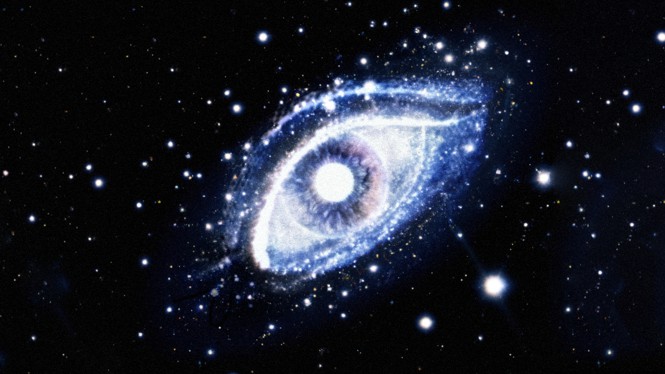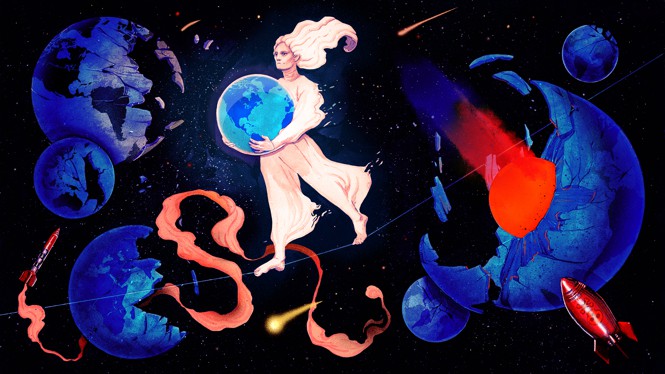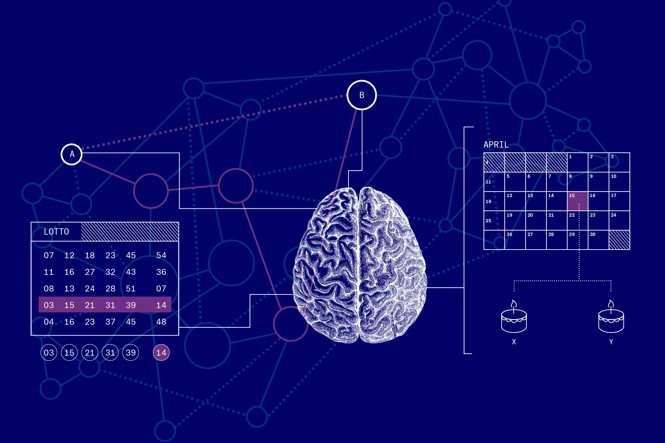
There are billions of planets in our galaxy, and billions of galaxies in the observable universe. Those numbers are impossible to picture, but NASA’s newest space telescope is helping us see the universe’s depths in unprecedented detail. Still, there’s one big mystery that humans might never be able to solve: How vast is the cosmos, really, and what does it contain?
If humans were to find evidence of life elsewhere in the universe, it would be a scientific marvel, but also an emotional and spiritual one, the physicist Alan Lightman noted in an essay earlier this fall. Our questions would multiply: “Where did we living things come from? Is there some kind of cosmic community?”
Lightman explains why life in the universe is likely really, really rare. “We living things are a very special arrangement of atoms and molecules,” he writes. But these questions aren’t just about other planets and galaxies; they’re also about us, here on Earth, and why we may want to believe that our lives and our stories are one of a kind. What follows is a reading list on why things are the way they are—from life on Earth down to creepy coincidences at the coffee shop—and how we deal with the unknowable.
The Cosmic Dice

Life Is an Accident of Space and Time
By Alan Lightman
Even if life existed on every planet that could support it, living matter in the universe would amount to only a few grains of sand in the Gobi Desert.

Why Earth’s History Appears So Miraculous
By Peter Brannen
The strange, cosmic reason our evolutionary path will look ever luckier the longer we survive.

Coincidences and the Meaning of Life
By Julie Beck
The surprising chances of our lives can seem like they’re hinting at hidden truths, but they’re really revealing the human mind at work.
Still Curious?
- Don’t be afraid of the multiverse: A scientist gets quizzed on the idea that different realms of the universe have different properties of physics. (From 2018)
- Shifting beliefs in fate and chance: Ancient dice were often visibly biased, but to gamblers who believed in divine intervention, that might not have mattered. (From 2018)
Other Diversions
- A pocket-size time machine
- Dolphins might have elite spice tolerance.
- The mobster who bought his son a hockey team (From 2018)
P.S.
I’ll leave you with an interesting tidbit from Julie Beck’s article on coincidences: Beck cites research showing that certain personality traits are linked to a greater likelihood of experiencing coincidences. People who self-describe as religious and people who seek meaning, for instance, are especially prone to finding coincidences in their daily lives.
(One group that might not see as many coincidences? Residents of the U.K, according to one professor Beck spoke with. “Coincidences never happen to me at all, because I never notice anything,” he said. “I never talk to anybody on trains. If I’m with a stranger, I don’t try to find a connection with them, because I’m English.”)
— Isabel







